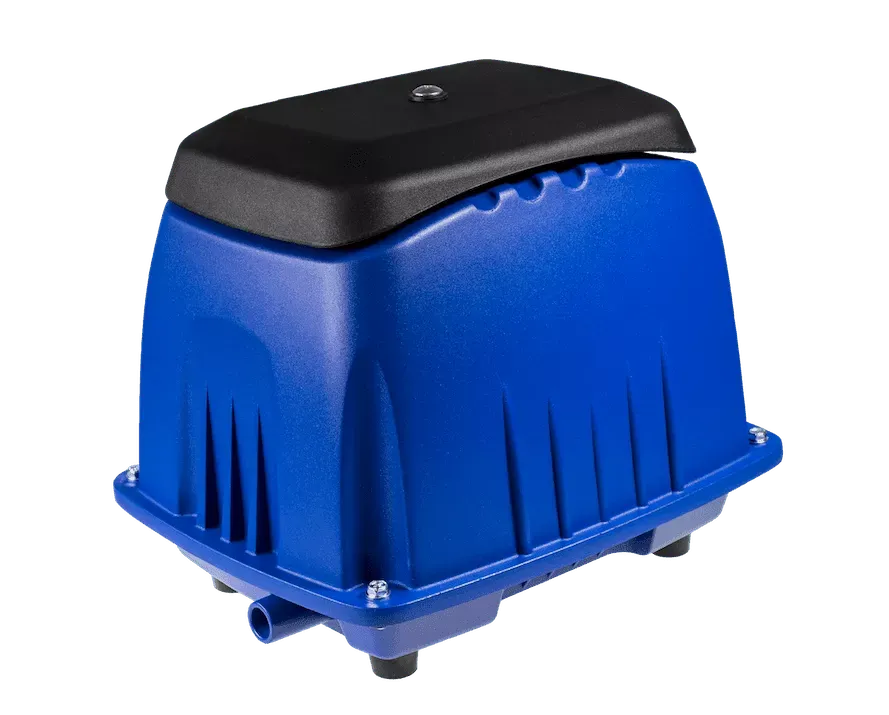Finding the Best Septic Tank Linear Air Pump: Your Complete Guide

Have you ever wondered why your septic system isn't working as well as it should? The answer might be simpler than you think.
Your septic tank needs proper air flow to break down waste effectively. Without the right air pump, you could face expensive repairs and messy problems. We're here to help you find the best septic tank linear air pump that will keep your system running smoothly for years to come.
This guide will show you exactly what to look for, how to choose the right pump, and why making the smart choice now can save you thousands later.
Why Your Septic Tank Needs a Linear Air Pump
Think of your septic tank like your lungs. Just as you need air to breathe, your septic system needs air to work properly.
A linear air pump pushes oxygen into your septic tank. This oxygen feeds the good bacteria that eat up waste and keep everything flowing smoothly.
Without enough air, these helpful bacteria die off. When that happens, your septic system starts to fail. You'll notice bad smells, slow drains, and eventually costly backups.
What Makes a Linear Air Pump the Best Choice
Linear air pumps are different from other types of septic pumps. Here's why they work so well:
Steady Air Flow
Linear pumps provide consistent air pressure
No pulsing or irregular air bursts
Keeps bacteria happy and healthy
Quiet Operation
Much quieter than rotary pumps
Won't disturb your family or neighbors
Perfect for residential use
Much quieter than rotary pumps
Won't disturb your family or neighbors
Perfect for residential use
Long-lasting Design
Fewer moving parts mean less wear and tear
Can run for years without major repairs
Better value for your money
Top Features to Look for in the Best Septic Tank Linear Air Pump
When you're shopping for a new pump, focus on these key features:
Power and Performance
Look for pumps that deliver at least 40 liters per minute of air flow. This ensures your septic tank gets enough oxygen to work properly.
The best pumps also maintain steady pressure even when working against back-pressure from your system.
Power and Performance
Your pump will live outside in all kinds of weather. Choose one with:
Weatherproof housing
Rust-resistant materials
UV protection for plastic parts
Energy Efficiency
A good linear air pump should use less than 50 watts of power. This keeps your electric bill low while still doing the job right.
Look for Energy Star certified models when possible.
Easy Maintenance
The best pumps make maintenance simple:
Easy-access air filters
Clear maintenance schedules
Replacement parts readily available
How to Choose the Right Size Pump
Size matters when picking your septic air pump. Too small, and your system won't get enough air. Too big, and you'll waste money and energy.
Here's how to figure out what you need:
For 3-bedroom homes or smaller:
40-60 liters per minute is usually enough
Standard residential models work well
For 4-bedroom homes or larger:
60-80 liters per minute keeps up with demand
Consider heavy-duty residential models
For commercial properties:
80+ liters per minute may be needed
Professional sizing is recommended
Installation Tips for Maximum Performance
Even the best septic tank linear air pump won't work well if installed incorrectly. Follow these steps:
Choose the Right Location
Place your pump:
At least 10 feet from your septic tank
On level, well-drained ground
Away from windows and outdoor living areas
Protect Your Investment
Install these protective features:
Alarm system to warn of pump failure
Backup power source for power outages
Regular maintenance schedule
Connect Properly
Make sure all connections are:
Tight and secure
Protected from weather
Easily accessible for service
Maintenance That Keeps Your Pump Running
Your linear air pump needs regular care to perform its best. Here's what to do:
Monthly Checks:
Listen for unusual noises
Check for visible damage
Ensure alarm system works
Every 3 Months:
Clean or replace air filter
Check all connections
Test air flow output
Yearly Service:
Professional inspection
Replace worn parts
Update maintenance records
The EPA recommends regular septic system maintenance to prevent costly failures.
Signs Your Current Pump Needs Replacement
Don't wait for complete failure. Watch for these warning signs:
Loud or unusual noises
Frequent filter clogging
Rising electric bills
Septic system odors
Slow-draining fixtures
When you notice these problems, it's time to start shopping for a replacement.
Common Mistakes to Avoid
We see homeowners make these costly errors:
Buying Based on Price Alone The cheapest pump often costs more in the long run. Focus on quality and reliability.
Ignoring Size Requirements An undersized pump will fail quickly. An oversized pump wastes energy and money.
Skipping Professional Installation Improper installation voids warranties and causes early failure.
Making Your Final Decision
When choosing the best septic tank linear air pump, remember these key points:
Match the pump size to your home's needs
Choose quality over low price
Plan for professional installation
Set up a maintenance schedule
A quality linear air pump is an investment in your home's future. It protects your septic system, prevents costly repairs, and keeps your family healthy and comfortable.
Conclusion
Finding the right septic air pump doesn't have to be complicated. Focus on reliability, proper sizing, and quality construction.
A well-chosen pump will serve your family for many years. It will keep your septic system healthy and save you from expensive emergency repairs.
Remember, the best septic tank linear air pump is the one that matches your specific needs and gets installed correctly. Take time to research your options, and don't hesitate to ask professionals for advice when you need it.

© 2025 | All Rights Reserved | Privacy Policy
